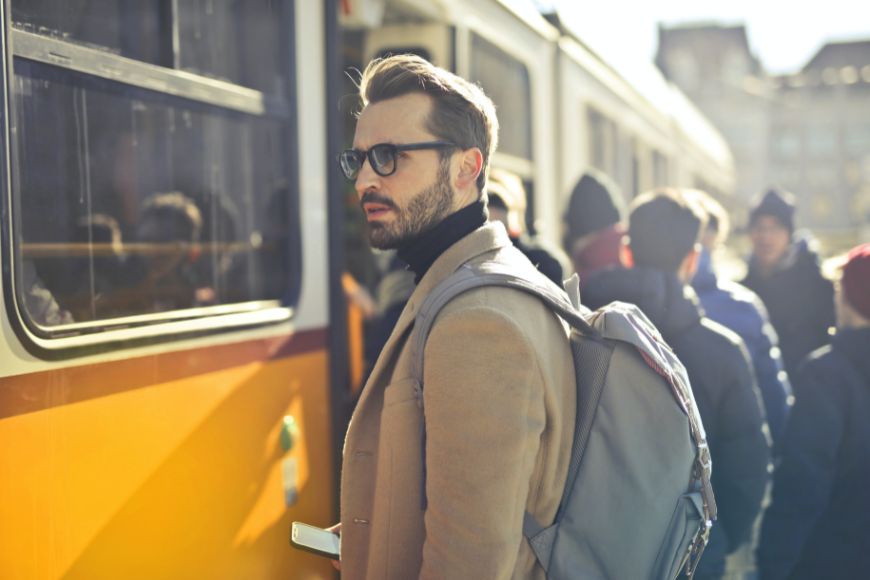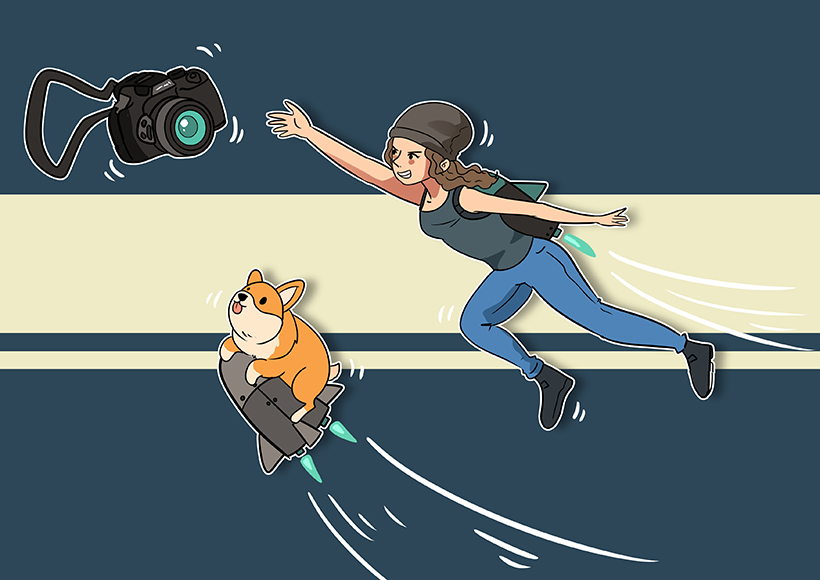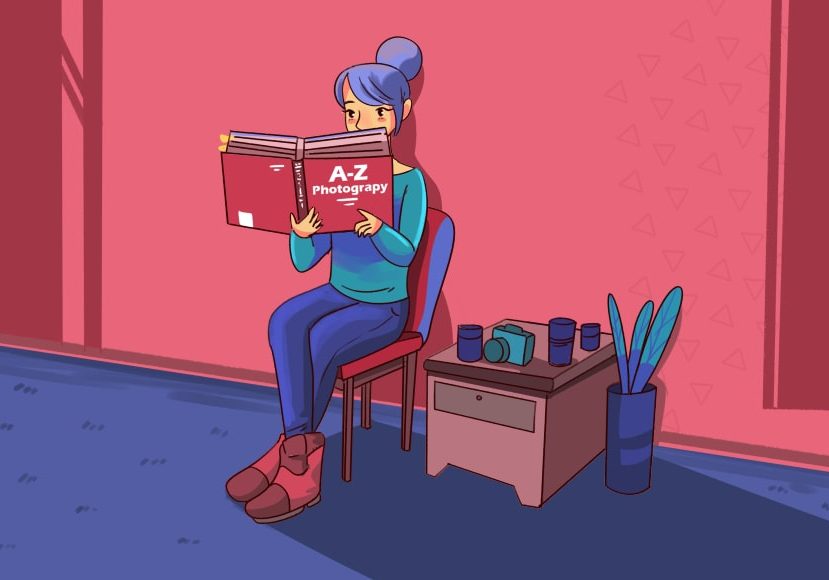
This guide will help you answer one of the most important questions in the world of digital photography: Is it illegal to take pictures of people in public?
With the rise of smartphones and social media, it’s become easier for just about anyone to quickly whip out their camera and take a snapshot of a person without consent.
A great privilege such as this comes with the responsibility of respecting people’s right to privacy, even when they’re out and about.
In this article, you’ll discover how to take candid photographs in public spaces while safely staying within legal limits.
You’ll also become familiar with public places that ban photography and special situations where you’ll need the owner’s permission before you can start snapping photos.
Let’s get started!
Is It Illegal to Take Photos of Someone in Public Without Consent?


The short and simple answer to this question is no. Generally, no law prevents people from taking photos in public.
Photographing people who are plainly visible from a public place is part of your constitutional right. The First Amendment protects it as an exercise of your freedom of expression.
You can legally take photos of passersby in busy streets, children at the playground, celebrities at a concert, and public authorities at the park.
You’re also free to photograph the people outside government buildings and those using public transportation. The same goes for police and politicians outdoors as they do their duties.
However, you should avoid zooming your camera into private spaces and taking pics of people at an indecent angle, as these acts go against privacy laws.
Capturing images of people in public bathrooms, fitting rooms, gym showers, and public places where there’s a reasonable expectation of privacy is also punishable by law.
The Privacy Act in Photography
The Privacy Act of 1974 and other privacy laws in the United States provide legal standards and safeguards against the invasion of people’s privacy.
These laws draw a line for photographers, cameramen, and videographers when it comes to taking and publishing pictures of the public based on a reasonable expectation of privacy.
In the realm of photography, four major violations of the privacy law can occur:
- Intrusion: Trespassing into private property and taking photos without consent
- False Light: Publishing misleading photos of people or improperly captioning them
- Private Facts: Publishing photographs that divulge someone’s sensitive information
- Misappropriation: Using someone’s photo or likeness without consent for commercial purposes
Understanding Photography Laws


Reactions and restrictions on photography often vary from one culture, state, or country to another.
Some locations have stricter laws, larger fines, and heavier punishments than others in the interest of promoting children’s safety and public morality.
As a photographer, your best protection against complaints and legal trouble would be to familiarize yourself with local photography laws.
When in doubt, consult a legal professional first before capturing or publishing a questionable photo without consent.
USA
In the United States, photographers’ constitutional rights allow them to legally take pictures of people who are plainly visible in public.
How Much Do You REALLY Know About Photography?! 🤔
Test your photography knowledge with this quick quiz!
See how much you really know about photography…


Laws such as the Privacy Act of 1974 exist to prevent people’s privacy from getting compromised, while the right of publicity regulates the use of photos for commercial purposes.
You can freely take pictures of tourist attractions in the US, whether they’re public or private property. But, in some areas, like California State Parks, you’ll need a permit to sell images.
As for accidents and unexpected events, photographing them in the US is usually legal, as long as you don’t interfere with law enforcement or emergency response operations.
Australia
Australia’s photography laws are fairly similar to that of the United States. You’re generally allowed to photograph buildings, sites, and people in a public location without consent.
You’re also free to publish your images on websites and social media as long as they don’t contain confidential data, aren’t defamatory, and don’t violate Australia’s Privacy Act of 1988.
Note that taking photos of the whole or a substantial portion of specific forms of public art, such as murals, can be considered an infringement if the Copyright Act protects the piece.
Meanwhile, using someone’s photo to endorse a product or service without their consent can be considered “deceptive conduct” under the Australian Consumer Law.
The country also has image-based abuse laws that prohibit posting intimate photos of a person online without their permission. Taking photos in court is also restricted to protect privacy rights.
Canada
The Canadian Charter of Rights and Freedoms protects photographers’ right to free expression, allowing them to capture and publish pictures of people in public places without consent.
However, this only applies to personal photography and images taken for journalistic, literary, or artistic purposes.
If you want to use the photos of identifiable persons for commercial activities, you’ll need their consent under the Personal Information Protection and Electronic Documents Act.
Canada’s privacy laws allow you to photograph public figures, like celebrities, athletes, and politicians, in public as long as it’s for non-commercial purposes.
You’re also free to capture and publish images of the country’s public property. This includes parks, sculptures, and monuments that are “permanently situated in a public place or building.”
Japan
Photography in most public places is also legal in Japan, as long as you don’t portray your subjects in a derogatory way.
Japan has no criminal laws covering portrait rights, but some legislations prevent breaches of people’s privacy rights and the unauthorized commercial use of candid photos.
The country has high standards and strict cultural norms regarding photo etiquette, so avoid taking compromising photos of people if you don’t want to face civil complaints.
Surprisingly, it’s common for street photographers in Japan to ask permission before or after taking candid shots in public.
They also won’t hesitate to delete photos if the subject is uncomfortable about it. Additionally, taking photos of kids without parental permission is generally frowned upon in this country.
Is It Illegal to Take Photos of A Child Without Permission?
Since no law prevents photographers from taking pictures of people in public, you can legally photograph other people’s children at an amusement park, soccer game, or beach.
However, just because you can doesn’t always mean you should! Taking photos of kids without permission can be regarded as suspicious activity by their parents.
Also, note that you still have to respect common law privacy protections.
Public acts on the streets are okay to photograph, but posting kids’ personal matters and indecent shots on child pornography sites is heavily punishable by law.
Some states have stricter regulations on child photography, so it’s best to check your local laws to stay within legal limits.
Is It Illegal to Take Photos of Private Property?
If you’re standing on a public street and want to capture shots of people’s houses for artistic freedom or souvenir purposes, go ahead!
Taking photos of private property from a public spot is fine if you’re not taking pictures inside homes, including private yards and pool patios.
This violates “peeping Tom” laws and other privacy laws.
Meanwhile, walking onto private property and taking pics without permission can be considered trespassing, so you’ll need the consent of the property owner before you do so.
The above-mentioned exception is also true for privately owned properties that accept customers, like shopping malls, restaurants, and retail stores.
Generally, you’re allowed to take photos in these places unless “no photography” signs are posted.
But, if the property owner or store employee tells you to stop taking photos, you’ll need to stop, or you may be liable for trespassing.
When Does It Become Illegal to Take Photos of People in Public?
Just because a place is open to the public doesn’t necessarily mean that photography is legal.
Have you ever wondered why taking pictures in train stations, parks, and rock concerts is usually allowed, but for public bathrooms, gym showers, and fitting rooms, it isn’t?
That’s because the latter places have a reasonable expectation of privacy. Capturing candid pictures in such areas breaches privacy law, which is punishable through fines or jail time.
Taking inappropriate photographs of people in public, as in the case of upskirt, down-the-shirt, or voyeur photos, is also prohibited by law.
Public Places With Photography Bans
Additional exceptions to the rule of open public photography include military bases and the armed forces headquarters for national security reasons.
You’re also forbidden from photographing people inside courtrooms, casino floors, airport security checkpoints, and post offices to prevent privacy breaches.
Several art galleries, museums, churches, and other sacred places also ban picture-taking to prevent art damage from flash photography and preserve the quiet and serene atmosphere.
Take the HARD Photography Quiz! 🤯
Now it’s time to really test your photography knowledge!
(99% of people can’t get all the questions right…)


Special rules apply to the legality of cameras in movie theaters, flying drones over houses, and recording someone in public.
Can You Use Photos of People in Public for Commercial Purposes?
Capturing photos of people for an amateur photography hobby is one thing, but what if you plan to sell or use the photos to promote a product?
Well, the right of publicity prevents the unauthorized use of a person’s identity by a third party for commercial purposes. It’s like Intellectual Property law but for identity and image rights.
This means that without proper permission, you can’t use candid shots of identifiable persons for commercial advertising photography.
Most professional photographers obtain a signed release form or a photography permit from the person in the photo before legally selling or distributing it.
Can You Publish Photos of People in Public?


Publication of photographs taken in public for non-commercial purposes is generally allowed as long as the people in them have no expectation of privacy.
You should also ensure that situational pictures don’t create a false impression of someone that could harm their reputation.
For instance, posting the portraits of persons on a website for America’s Most Wanted, even if they aren’t wanted, is wrong for obvious reasons and can land you in legal trouble.
Moreover, distributing photographs that give away someone’s private information, such as photos of people at a hospital or doctor’s appointment, can lead to a privacy issue.
Another important thing to consider when posting and publishing images is copyrighting your photos and providing photo credits where they’re due.
What to Do If Someone Stops You From Taking Pictures of People
Taking photos of people, things, and other subject matter that are plainly visible from public property is your constitutional right.
Police officers and others generally cannot demand to view, delete, or confiscate your photos without a warrant.
They can only do so if you’re committing an invasion of privacy, causing a public disturbance, or interfering with medical or police operations.
If a security guard or police personnel stops you for photography, remain respectful, avoid physical resistance, and ask if you’re free to go.
Additionally, when someone has already asked you not to take their photo, capturing it anyway can be considered harassment in some jurisdictions.
What to Do If Someone Took Your Picture Without Permission
Imagine that you’re walking home from work when suddenly, a street photographer snaps a portrait photograph of you. What do you do?
Since you’re in a public space with no expectation of privacy, this act of photography is legal in most cases. The best course of action would be to politely request for your photo to be deleted.
However, if the photographer took an indecent photo, tried to harass you, or violated your privacy rights in some way, you have the right to ask them to stop and delete the photos.
You can also report the incident to the authorities and file a legal complaint if necessary.
Highly Recommended


Check out these 8 essential tools to help you succeed as a professional photographer.
Includes limited-time discounts.






